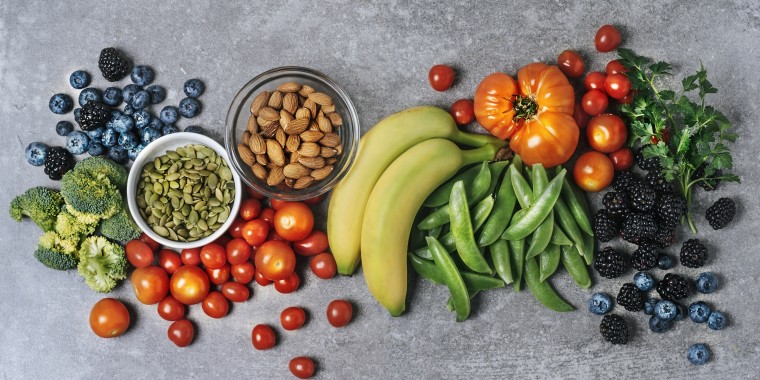Americans are eating less sugar and more whole grains, but they still love french fries, sweet beverages and red meat, proving “important dietary challenges” remain, a national diet report card has found.
Based on data from 43,996 U.S. adults who reported what they ate in the past 24 hours for the National Health and Nutrition Examination Survey, the nation’s eating patterns showed people improved their diet quality in some areas from 1999 to 2016, according to the investigation published Tuesday in JAMA.
Yet, 42% of daily calories still came from low-quality carbs — including refined grains such as white bread, plus fruit juice and potatoes — and the intake of saturated fat remained above the recommended 10% of daily energy, the authors noted.
“The continued excessive intake of saturated fats, sugar, salt, and refined grains is of major concern,” two preventive medicine experts wrote in an accompanying editorial to the report.
“Snacks, desserts, pizza, fast food sandwiches, and sugar-sweetened beverages are currently major contributors to the population energy intake and confer dubious contributions to diet quality,” wrote Linda Van Horn, chief of nutrition in the department of preventive medicine at Northwestern University Feinberg School of Medicine; and Marilyn C. Cornelis, an assistant professor in the same department.
The investigation, done by researchers at Tufts University and Harvard University, found the following trends over 17 years when it came to the three macronutrients the human body needs in large amounts: carbohydrates, protein and fat.
Carbs:
The total carbohydrate intake in the U.S. diet dropped from about 52% to about 50%. Americans boosted their intake of high-quality carbs, like whole grains and whole fruit, by about 1% and reduced the amount of low-quality carbs, such as added sugar, by about 3%
Protein:
The total protein consumption increased from 15.5% to 16.4%. Americans ate more of both animal protein, such as poultry and eggs, and plant protein, including whole grains, nuts and soy.
But they still mostly got their protein from animal sources, such as red meat, while making seafood and plant sources a much smaller percentage of their daily intake.
“Previous studies showed that red meat and processed meat were associated with poorer health outcomes,” the authors noted.
Fat:
The total fat intake increased from 32% to about 33%.
Saturated fat intake — at almost 12% of daily calories — remained above the 10% level recommended by the Dietary Guidelines for Americans.
Overall, Americans have been eating fewer carbs and more fat in the last two decades — a reversal compared to diet trends seen before 2000, when guidelines still recommended low-fat diets, the paper noted. The popularity of the Atkins, paleo, low-carb and vegan/vegetarian diets also are also showing their influence.
'Woefully shy of the recommended guidelines'
The investigation also looked at scores in the Healthy Eating Index 2015, which measures how well people are following recommendations in the 2015-2020 Dietary Guidelines for Americans.
The index showed some improvement in diet quality, but it was “small in magnitude and of uncertain clinical importance,” the authors wrote.
The overall score remains “woefully shy of the recommended guidelines,” Van Horn and Cornelis wrote in the accompanying editorial.
They called on the food industry to help encourage Americans to eat more whole grains, fruits, vegetables and plant-based protein sources, while reducing sugar, salt and saturated fat.

